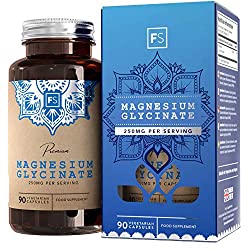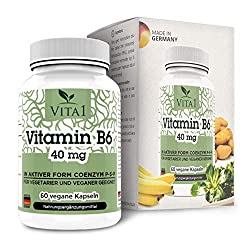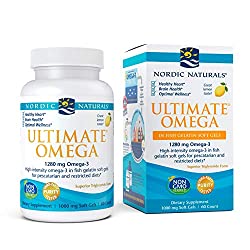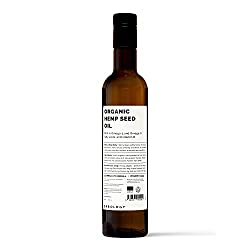This site is not intended to provide medical advice. Any information provided is purely for entertainment purposes. Always speak to your doctor before beginning a new health regime. Sponsored products may help maintain the costs of this site without costing you extra.
What are the best supplements for PMS
As many as three in four women claim they suffer from PMS symptoms at least once in their lifetime. Which means if PMS doesn’t effect you personally then chances are it effects someone close to you. With this in mind it does come as a surprise how little emphasis is placed upon coping strategies for this common issue. Here we aim to answer “What are the best supplements for painful periods?“
What is PMS?
Before we examine some of these coping strategies it’s important to know what exactly is PMS? PMS or Premenstrual Syndrome is defined as a set of symptoms experienced in the lead up to your period. These symptoms can occur up to 14 days before your period and normally stop soon after your period starts.
PMS Symptoms
PMS symptoms can present themselves as both physical and psychological symptoms. Commons symptoms can include the following:
- depression
- bloating
- fatigue
- anxiety
- irritability
- breast tenderness
- headaches
- changes in libido or appetite
- sleep disturbances
Whilst some women may experience just one symptom there are others who may experience several or more. None of which are particularly compatible with the requirements of a busy modern life. These symptoms can range in severity between mildly irritating to downright debilitating!
Why do women get PMS?
The exact reason why women get PMS hasn’t been answered however there are mechanisms that may help us understand it’s cause. Many experts believe the answer lies in the volatility of hormones in this time period. Hormones such as progesterone, estrogen and serotonin play important roles in the modulation of mood. These hormones have their own cycle and can increase or decrease throughout the month.
There are likely many other articles that are better informed about this complex cycle if you wish to read up. However, that’s not exactly what we’re doing here today. We are looking for ways to improve this tiresome condition.
Can supplements help with PMS?
Yes. There are several supplements which have been praised for their symptom alleviating magic when it comes to PMS. When we address PMS treatment we must realise there are several avenues of effective treatment. Firstly if you experience bloating and fatigue, there wouldn’t be much good taking a supplement for headaches. If low-mood is your most problematic symptom then what good is taking a supplement for bloating?
It’s important to firstly address your symptoms and then formulate a supplement stack to best target that issue.
What are the best supplements for PMS?
1. Magnesium
Magnesium has long been known for its amazing health benefiting qualities. From a reduction in blood pressure, to maintaining a balanced heartbeat, improving immune system and assisting in overall energy production. This mega-mineral is involved in well over 300 enzymatic processes. To say magnesium is essential to good health is a more than an understatement.
In one of the most popular peer-reviewed studies about lessening period pain we find none other than magnesium at the heart of it. This study was initially set out to “determine the effect of magnesium (Mg), combination of vitamin B6 and magnesium, and the placebo on the severity of PMS in patients”.
The study concluded that a combination of magnesium and vitamin B6 were more effective than magnesium or placebo at decreasing PMS symptoms.
Study
What’s more the study even showed the magnesium and vitamin B6 group had a marked reduction in the following symptoms:
- Depression sub-group: including symptoms of depression and isolation, avoiding social activities, crying, dejection, inclination to remain at home, anger, forgetfulness, insomnia, and inability to concentrate.
- Anxiety sub-group: including the signs of nervous tension, irritability, and anxiety.
- Water retention sub-group: including breast pain and tenderness, lower extremity edema, bloating, and abdominal discomfort.
- Somatic symptom sub-group: including the symptoms of feeling cold, nausea, urination frequency, flushing, low back pain, headache, acne, greasy skin, arthralgia, and muscular pain.
The study found best results using 250mg magnesium per day alongside 40mg of vitamin B6. If you want a supplement that contains the exact same dose as the study, you can buy a highly rated magnesium supplement here:
We love this option because it contains minimal fillers, is vegan friendly, allergen free and non-GMO. What’s more each dose contains exactly 250mg of magnesium
How to take it: The aforementioned study suggested that magnesium should be taken for a minimum of 2 months to be effective. Magnesium has a recommended daily allowance of 270mg per day for women according to the NHS website. Remember, this is the minimum amount recommended per day to avoid deficiency. Many people experience benefits from doses higher than this, always check with your health professional for more details.
What to look out for: If you experience bouts of low blood pressure then please consider this when supplementing magnesium. Magnesium lowers blood pressure and can reduce sodium absorption. For more info check out Why Magnesium Stopped Working For You – How to fix it!
2. Vitamin B6
Vitamin B6 has a wide range of functions within our body. It helps the body to use and store energy from carbohydrates and protein in food, helps the body form red blood cells, which in turn helps our bodies utilise energy more effectively. Basically all the things that you want the body to do whilst on your period.
If you wish to compliment your magnesium with vitamin B6, you can buy supplements that contain the same dose as the above mentioned study here:
This Vitamin B6 supplement is vegan, gluten free, GMO-free, and contains no artificial colourings or preservatives. Key Features: Clinically proven to reduce symptoms of PMS.
3. Calcium
Historically known as one of the most popular supplements worldwide, calcium has fallen out of favour with health advocates in recent years. However calcium is one of the most important of all the essential minerals.
Studies show women who suffer from PMS symptoms have significantly lower levels of calcium. Calcium deficiency has been linked to symptoms of depression, dry hair, dry skin, confusion, memory problems, extreme fatigue, weak muscle contractions, insomnia and anxiety. Do any of these sound familiar? Not a great combination!
In January 2017 a clinical trial was published to investigate the efficacy of calcium supplements as a means to reduce PMS symptoms. The study proved that calcium was an effective method for reducing mood disorders associated with PMS. What’s more, the study concluded calcium is effective at reducing the symptoms of depression, emotional changes and somatic changes. The study found a significant improvement in symptoms from the women who were taking 500mg calcium supplements.
In a separate study investigating the effects of calcium supplementation on PMS symptoms the findings were further solidified. In a 2008 clinical trial calcium supplementation at 1000mg per day were said to significantly improve symptoms of sadness and depression. If you wish to trial calcium as a means to reduce your PMS symptoms, you can find a great value supplement here:
This calcium supplement contains both magnesium and vitamin D, which are needed for calcium absorption. What’s more it’s gluten free, vegan and great value!
4. Vitamin D
Vitamin D, sometimes known as the sunshine vitamin, is absolutely essential to good health. But can vitamin D improve PMS symptoms?
The answer is a resounding yes! A clinical trial was undertaken in 2018 to assess the role of vitamin D in reducing symptoms of PMS or dysmenorrhea (dysmenorrhea is the medical term to describe frequent menstrual cramps and pain during period). The prevalence of symptoms fell from 14.9% to 4.8% in the PMS group, a significant reduction. Similar positive results were found in the dysmenorrhea group as well as the dysmenorrhea and PMS group. What’s more the study concluded that vitamin D supplementation was associated with a reduction in PMS symptoms such as backache and a tendency to cry easily.
Key Points: The subjects in the study were given 50,000UI of Vitamin D per week over a course of 9 weeks.
There has been no unanimously agreed upon reason as to why some women suffer from PMS. However vitamin D levels have been shown to be inversely related to PMS symptoms. This means that PMS is more likely to effect those with lower levels of vitamin D. This is likely due to the synergistic effect vitamin D has on calcium, as vitamin D is necessary for calcium absorption in the body. Learn more about vitamin D and calcium interactions here.
If you wish to take a quality vitamin D supplement you can purchase one here:
Vitamin D reduced PMS symptoms in a clinical trial from 14.9% to 4.8%. Convenient pill-free spray form, 3000UI. Proven to reduce PMS backache and tendency to cry.
5. Essential Fatty Acids
Essential fatty acids are defined as those polyunsaturated fatty acids (PUFA) that must be provided by foods because these cannot be synthesized in the body yet are necessary for health by the NIH (National Institute for Health). Still, we want to know can essential fatty acids help with PMS symptoms? The answer is a surprising, yes. A randomised controlled trial, that took place in 2011, concluded a pill containing a mix of EFA (essential fatty acids) has been shown to significantly reduce the symptoms of PMS.
Conclusion: It appears that omega-3 fatty acids may reduce the psychiatric symptoms of PMS including depression, nervousness, anxiety, and lack of concentration and may also reduce the somatic symptoms of PMS including bloating, headache and breast tenderness. These effects increased by longer duration of treatment.
https://pubmed.ncbi.nlm.nih.gov/23642943/
It’s important to note the trial administered 1 to 2 grams of EFA in pill form. The pill consisted of a mixture of gamma linolenic acid, oleic acid, linoleic acid, other polyunsaturated acids (Omega-3’s) and vitamin E. What was most interesting was, even in the group given 2 grams of mixture per day, there was no significant change in cholesterol after 6 months of dosing.
Two of the most popular products to increase our Omega-3 intake would be hemp oil or fish oil. It goes without saying one contains animal products the other does not. As for Omega-3 content, both are excellent sources so its mostly personal preference.
Nordic Naturals are an award winning brand of fish oil, capsule form to avoid unpleasant taste. Contains 1280mg Omega-3 per serving, better absorption, proven purity, and sustainable.
Certified organic cold-pressed hemp seed oil, rich in Omega-3 & Omega-6, contains 29μg of Vitamin D, vegan, gluten-free and non-GMO.
Can supplements really help with PMS?
Yes! As with many other chronic health conditions, a number of clinical trials concerning PMS have already taken place that prove nutritional supplements have a positive effect. The great thing about supplements backed by clinical studies, we’re not relying on the testimony of a friend, or specific company that is trying to push a particular product. Clinical studies allow us to really drill down into the data and explore the mechanisms surrounding our symptoms.
Through researching this topic we have found 5 supplements that are proven to significantly reduce the uncomfortable symptoms of PMS. What’s more there are products that help treat both the physical and psychological symptoms of PMS. True to our company values, all of these supplements we mentioned are considered natural ways to reduce PMS symptoms. This is because they are concentrated nutritional supplements rather than a medicine. This allows better for potentially better absorption and fewer risks of side-effects. This is great news if those looking for natural remedies for PMS symptoms!

Vitamin D
Best for:
Bone pain, depression, fatigue, immune system
Final Thoughts
We have seen clinical evidence that supplements can have a positive effects on PMS symptoms. What must be noted is these studies range in length from 4-8 weeks in duration. Supplements only reach their full potential when taken every day, ideally for at least 30 days.






